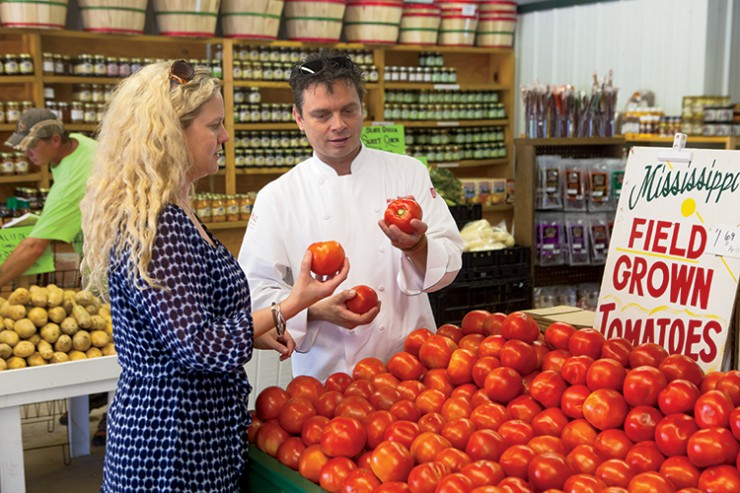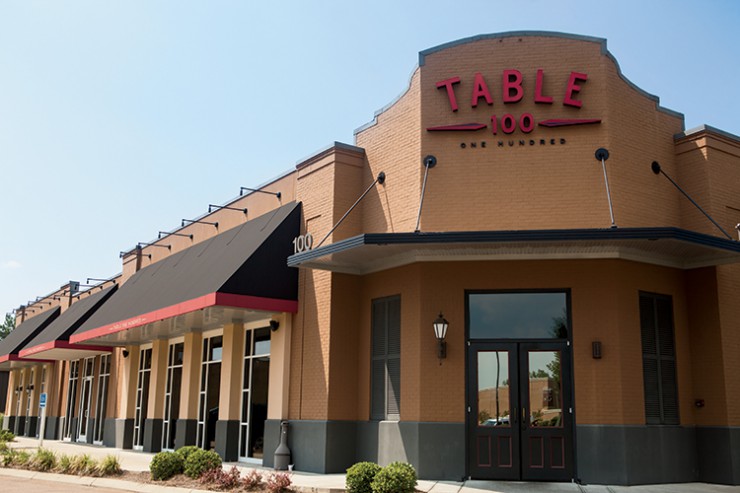Home > Mississippi > Mississippi Farm to Table > Going Local in Mississippi
Going Local in Mississippi
In partnership with: Mississippi Department of Agriculture and Commerce
 Farm-to-table is a popular movement stirring in the Mississippi culinary world, as many area restaurants team with farmers and other food producers to deliver fresh, locally grown food to their patrons.
Farm-to-table is a popular movement stirring in the Mississippi culinary world, as many area restaurants team with farmers and other food producers to deliver fresh, locally grown food to their patrons.
Consumer Driven
According to Mike Cashion, executive director of the Mississippi Hospitality and Restaurant Association, more and more customers are looking for menu items featuring locally grown food – and are willing to pay a little extra to support those in the community. “The restaurant industry is driven by consumer demand and expectations. As consumer demand for more local food grows, restaurant operators must develop menu items and systems for meeting that consumer expectation,” Cashion says. “Part of our mission is to help restaurants identify ways to increase business and profitability. We keep a close eye on consumer trends and try to put programs together that can have a positive effect on the whole industry.” 
Locally Sourced
Table 100, a Euro-American bistro with a southern flair located in Flowood, is a big supporter of the sustainable food movement. Since opening three years ago, the restaurant has worked with area food producers to incorporate everything from heirloom tomatoes and cheese to honey from Mississippi bees into its menus. “We often get together with the farmers and work with them on what they are growing and what our needs are, so they can plan their planting season around our menu,” says Mary Allen Bennett, sales manager for Table 100. “It’s important to support our local farmers and local agricultural businesses as a whole.”
Straight from the Farm
Royals Farm in Terry, Mississippi, supplies the restaurant with lamb and beef. Meanwhile, Jody Reyer, owner of Reyer Farms in Lena, provides vegetables to Table 100, as well as another dozen restaurants in the area. “A good chunk of our income on the farm comes from supplying the produce to restaurants,” he says. “The greater importance of it, as far as I am concerned, is that it allows the restaurant customer to form a relationship with a farmer that you wouldn’t normally get.” Reyer regularly speaks with chefs about what’s growing well and how they can help further the farm-to-table movement, sometimes growing an off-the-wall item that the chef desires. 
Supporting the Community
As a way to give back, each year Table 100 hosts a farm-to-table dinner benefiting Mississippi farmers. A portion of proceeds is donated to Farm Families of Mississippi, an awareness program to promote locally grown items. Their efforts help bridge the gap between consumers and farmers in Mississippi. “We feel it’s important to acknowledge them and continue showing our support,” Bennett says. “The whole farm-to-table philosophy lets us provide customers with the freshest food possible while supporting the local food economy.” In addition to the great taste that the local products provide, farmers who sell directly to the restaurants can cut out the middleman and make more money to support their farms. Sourcing locally also means less cost in storage, refrigeration packaging and transportation.



